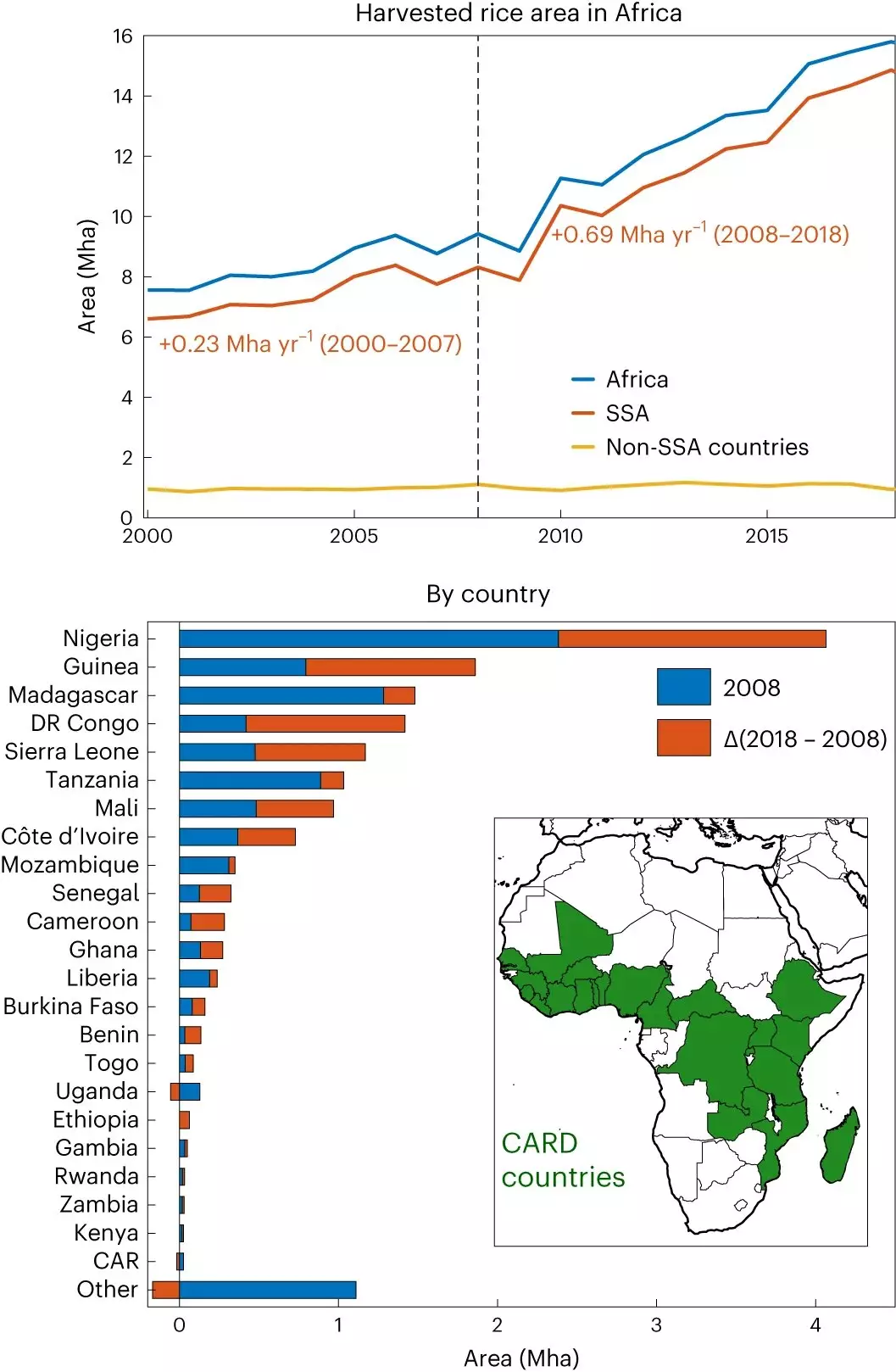A recent study conducted by Harvard University and the California Institute of Technology’s Jet Propulsion Laboratory sheds light on the alarming increase in methane emissions resulting from rice farming in parts of Africa. Published in the journal Nature Climate Change, the research reveals the significant role played by rice production in sub-Saharan Africa in contributing to greenhouse gas emissions. Understanding the implications of this study is crucial in addressing the environmental challenges associated with agriculture.
Methane, the second most important greenhouse gas after carbon dioxide, possesses exceptional radiative properties and contributes significantly to global warming. Despite its relatively lower emission levels compared to CO2, methane’s heat-trapping effect is more potent. Prior research estimates that around 25% of human-caused methane emissions arise from agricultural activities, with waste disposal and fossil fuel production accounting for the majority. Reducing methane emissions is therefore crucial for combating climate change.
Between 2008 and 2018, rice production in sub-Saharan Africa doubled, greatly contributing to the region’s food security. However, this exponential increase has come at a significant environmental cost. Rice cultivation, particularly in flooded paddy fields, emits substantial amounts of methane into the atmosphere. The study highlights the urgent need to address this issue and find sustainable solutions that balance food production and environmental concerns.
The research team set out to recalculate methane emissions resulting from rice farming in Africa. By analyzing data on Africa’s total greenhouse gas emissions prior to 2008, they then factored in the additional methane emitted due to rice production processes such as irrigation, flooding, burning, and harvesting. The researchers also improved the accuracy of determining rice-growing areas and the extent of methane emission periods. Through these calculations, they were able to estimate new figures for methane emissions in Africa.
The study unveils concerning results, indicating that the increase in rice production in Africa is responsible for approximately 31% of the continent’s overall rise in methane emissions from 2006 to 2017. Furthermore, it attributes 7% of the global increase in methane emissions during the same period to rice farming in Africa. These statistics underscore the urgent need to address the environmental impact of rice production and implement measures to reduce methane emissions.
Recognizing the detrimental impact of rice farming on methane emissions, concerted efforts must be made to find sustainable practices. Implementing resource-efficient irrigation systems and alternative cultivation methods can significantly reduce methane emissions. Additionally, adopting innovative techniques such as alternate wetting and drying (AWD) methods and integrated rice-fish farming can contribute to lowering methane emissions while maintaining crop yields.
The study’s findings call for a broader shift towards sustainable agricultural practices to tackle the environmental consequences of rice farming. Investing in research and development to develop methane-reducing technologies and improved crop varieties will be crucial. Furthermore, policymakers and governments need to prioritize sustainable practices through the provision of incentives and the implementation of regulations that encourage eco-friendly agricultural practices.
Addressing the environmental impact of rice farming in Africa requires collective action at all levels. Collaboration between researchers, policymakers, farmers, and the international community is essential. Sustainable farming practices, technological innovations, and educational outreach programs can empower farmers to adopt environmentally friendly methods. Furthermore, financial support and investment in sustainable agriculture initiatives are vital for their successful implementation.
While the increase in rice production in Africa has undoubtedly improved food security, it is critical to reassess the environmental consequences of this growth. Understanding the impact of rice farming on methane emissions can guide us towards sustainable solutions that mitigate climate change while supporting agricultural development. Combining scientific research, policy initiatives, and collective efforts, we can build a greener and more sustainable future for all.


Leave a Reply